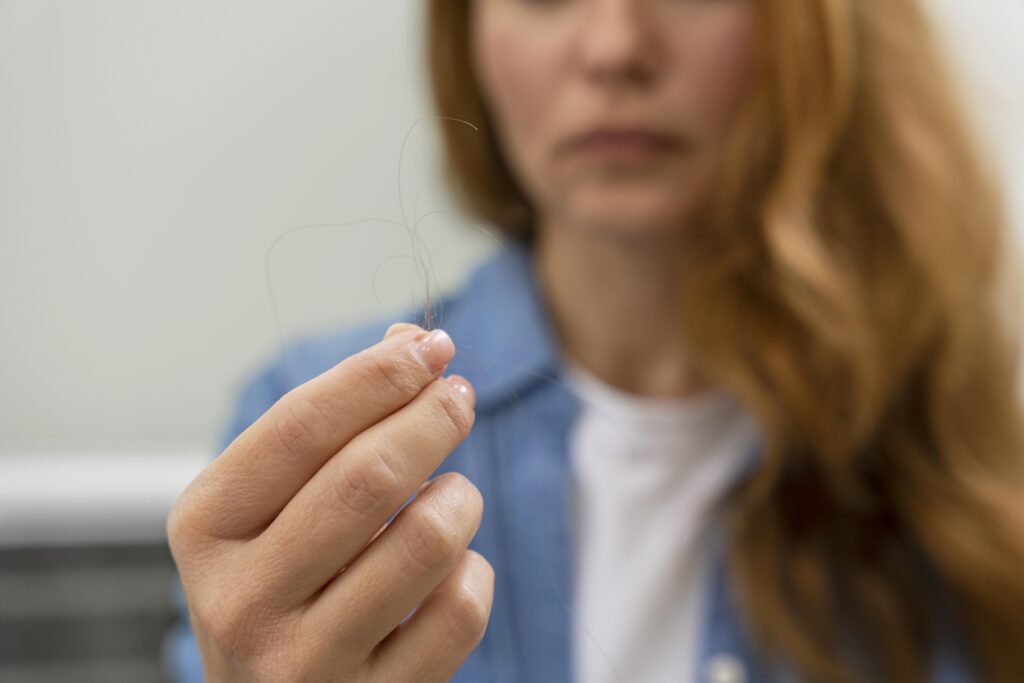
Genetic hair loss in women, scientifically known as female pattern baldness, is a condition that affects a significant portion of the female population, causing distress and impacting self-esteem. While hair thinning is a natural part of aging, genetic factors can expedite this process, leading to noticeable hair loss in women as early as their 20s or 30s.
The root cause of genetic hair loss lies in a combination of genetics and hormonal imbalances. Female hormones, specifically DHT, can bind to hair follicles, causing them to shrink and produce finer, shorter strands of hair. Over time, this leads to a reduction in hair density, particularly around the crown and the top of the scalp.
Understanding the cause is crucial in determining effective treatment options. Fortunately, modern medicine offers several approaches to combat genetic hair loss:
Topical Treatments:
Minoxidil, a topical solution approved by the FDA, stimulates blood flow to the hair follicles, encouraging hair growth and extending the growth phase. Regular application can slow down hair loss and promote thicker, healthier hair.
Oral Medications:
Finasteride, an oral prescription medication, inhibits the action of DHT, preventing further hair follicle shrinkage. It’s essential to consult a healthcare professional before starting this treatment to assess its suitability and potential side effects.
Low-Level Laser Therapy (LLLT):
LLLT devices emit low-level lasers or light-emitting diodes to stimulate hair follicles, promoting increased hair density and thickness. LLLT is a non-invasive option that has shown promising results in halting hair loss progression.
Platelet-Rich Plasma (PRP) Therapy:
PRP therapy involves injecting concentrated platelets from the patient’s blood into the scalp, stimulating hair follicle growth and improving overall hair quality.
Hair Transplantation:
In cases of advanced hair loss, hair transplantation procedures can be considered. Healthy hair follicles are extracted from donor areas and transplanted to thinning or balding areas, providing a permanent solution.
It’s essential for women experiencing genetic hair loss to consult with dermatologists or hair specialists. These experts can assess the individual’s condition and recommend a personalized treatment plan, ensuring the best possible outcome. With the right approach and timely intervention, women can regain their confidence and achieve fuller, healthier hair. Remember, seeking professional guidance is the first step toward combating genetic hair loss and embracing a positive self-image.

